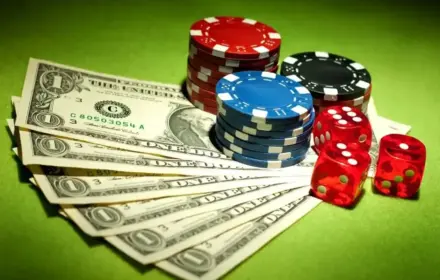Players form preferences not only in numbers or rituals, but also in time frames. Omens in gambling are often associated with specific time intervals. Some participants choose only morning draws, considering them “clean” from the influence of previous losses. Others, on the contrary, believe in the luck of evening sessions, explaining this by the “accumulation of energy” in the hall throughout the day.
In the segment of regular players, more than 41% adjust their participation to specific hours that have brought them winnings in the past. The habit of participating in the same draw every day, for example, at 7:00 p.m., becomes particularly stable. These patterns are accompanied by a sense of entering a “lucky cycle” and emotional stability.
The influence of time is also noted in the context of new moons and full moons. Some players believe that the “energy of numbers” intensifies during certain lunar phases. Such superstitions are most common in the 50+ age group, where lunar cycles are seen as a factor in enhancing or diminishing luck.
“Hall omens” — collective belief
In addition to personal rituals, players perceive and interpret collective signals. Omens in gambling can be formed based on observations of other participants. If a neighbor wins three times in a row by betting on four numbers, others start copying the behavior. Collective superstition quickly spreads and solidifies at the hall level.
For example, in one hall, players started avoiding bets on numbers located in the lower right sector of the table after hearing about an “unlucky zone.” Although the statistics of occurrence did not change, the behavior shifted: the share of bets on this section decreased by 27% over two months.
There is also the “newcomer effect.” When an inexperienced participant wins a large sum, hall veterans perceive it as a signal that the “flow has been renewed.” Some stop playing to “not argue with the flow.” These phenomena demonstrate how irrational observations shape a whole ecosystem of behavior.
Omens against logic: why it works
Omens in gambling contradict mathematics but continue to dominate. The reason is cognitive comfort. The participant feels in control, even if there is nothing to control. This reduces anxiety, makes the game more predictable on a subjective level.
Gaming psychology explains this through the “illusory correlation” effect. The brain links two events — a win and a specific action before it — and constructs a cause-and-effect relationship. Even with obvious randomness, such an experience builds confidence and reinforces the omen.
Practice shows that players with stable omens have a higher level of engagement and satisfaction with the game. They experience aggression less often when losing and maintain interest in the process longer. This confirms the irrational but stable effect of rituals as an adaptive strategy in conditions of uncertainty.
What to know about omens in gambling
Omens in gambling defy logic but work on the level of internal control feeling. A personal map of habits is formed in the hall: from choosing numbers to the arrangement of the chair and the color of the shirt. These elements become part of the gaming experience, create an atmosphere, and add emotional depth.
It is important not to devalue the power of such beliefs. Although they do not affect the outcome of the draw, they create a unique psychological comfort. For a keno player, it is not just about bets and winnings, but also about ritual, a way to interact with the unpredictable world of numbers.
 en
en  ru
ru  de
de  ar
ar  es
es  nl
nl  hi
hi  fr
fr  it
it  pt
pt  el
el 
